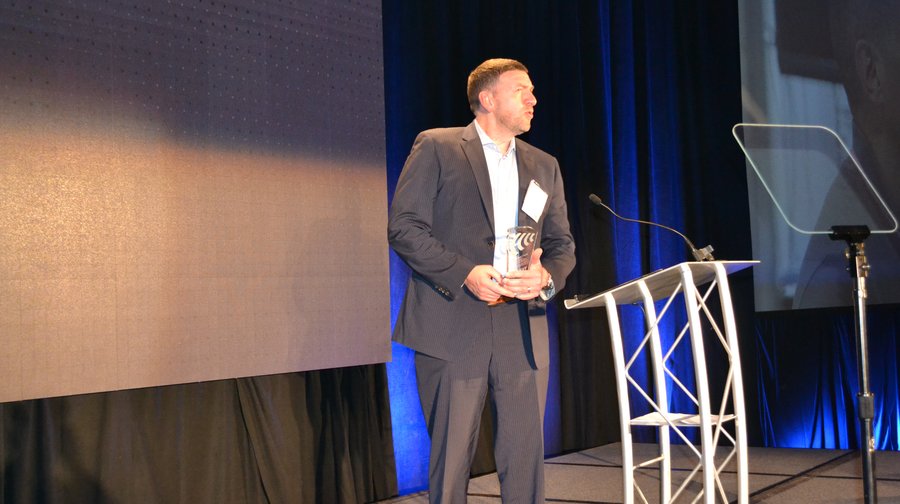A Westmoreland County fuel-cell manufacturer that appointed former Peoples CEO Morgan O'Brien as chairman has big plans for expansion into the residential market.
Watt Fuel Cell in Mt. Pleasant Township has been in a pilot program with Peoples for the past two years or so, developing the 7-inch fuel cells that use 3-D printing, chemistry and natural gas to create electricity for the home market. It already sells fuel cells using propane for RVs and small watercraft, and with Peoples has been testing the home air-conditioner-sized fuel cells within the utility's footprint.
It's been successful enough to move to the next stage for the company, developing its solid-oxide fuel cell system that could run a house on its own using natural gas or be able to connect with home solar panels and battery systems to create an even more powerful solution, said CEO Rich Romer and President Caine Finnerty.
O'Brien said that the ability for Watt to marry solar energy to a Watt fuel-cell system means that individuals can use solar when they're able, a natural-gas fuel cell when they're not, while also reducing the need for large-scale storage when solar isn't practical or at night.
"This makes it practical, economic and executable," O'Brien said. "That market has the potential to be huge." The system also, of course, could run on its own using natural gas without any solar option, just like in its previous iteration.
You won't be able to buy a Watt Fuel Cell at your local hardware store. As with its Peoples partnership, Watt is instead looking to work with utilities who would then install systems in customers' homes. While direct-to-consumer sales could be possible, far down the road, Romer said the best strategy right now is business-to-business.
Finnerty said the company has, over the past year and its work with Peoples, refined the system and improved upon it. And the company believes that while Pennsylvania is a good place to start due to the cheap natural gas here, the fuel-cell system and its ability to connect with solar and batteries, widens the opportunity that much further.
"We've spent time learning where the market is and what those opportunities are," Finnerty said. "As we've gone into this program, we've seen the economics make a lot of sense (for customer) and it allows us to look further afield than just Pennsylvania."
Watt has just started raising money for the next round, which is to grow the company. The global Covid-19 pandemic halted some of the progress, and the company had to furlough some people to where it has about 20 employees now. But it hopes with the fundraising and work toward commercialism that it will be able to increase employment, including development, manufacturing, support and installation.
"We're in the process of doing that work now," Romer said.
O'Brien said the new fuel-cell technology developed by Watt, along with the connection to solar, will be a powerful product for utliities around the country.
"It's a glimpse of what the future of energy could look like for a lot of people in their homes," O'Brien said.
